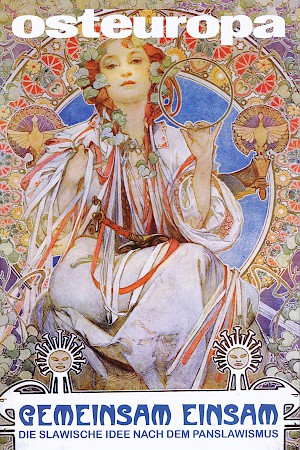Communism and the Slavic Idea (1920–1946)
From the Communist Balkan Federation to the All-Slavic Committee
Deutsche Fassung
Abstract
After the First World War, the Slavic idea, in a variety of forms, played a role in concepts of inter- and intrastate order formulated by the Communist parties of East Central and Southeastern Europe. In the 1930s, the Soviet Union occasionally deployed the Slavic idea to legitimize its foreign policy interests. After Nazi Germany’s attack on the Soviet Union, Communist and Slavic ideology nearly melded into one. After the Sovietization of East Central Europe and the break with Tito in Yugoslavia, Moscow tossed the Slavic idea overboard.
(Osteuropa 12/2009, pp. 125–138)



